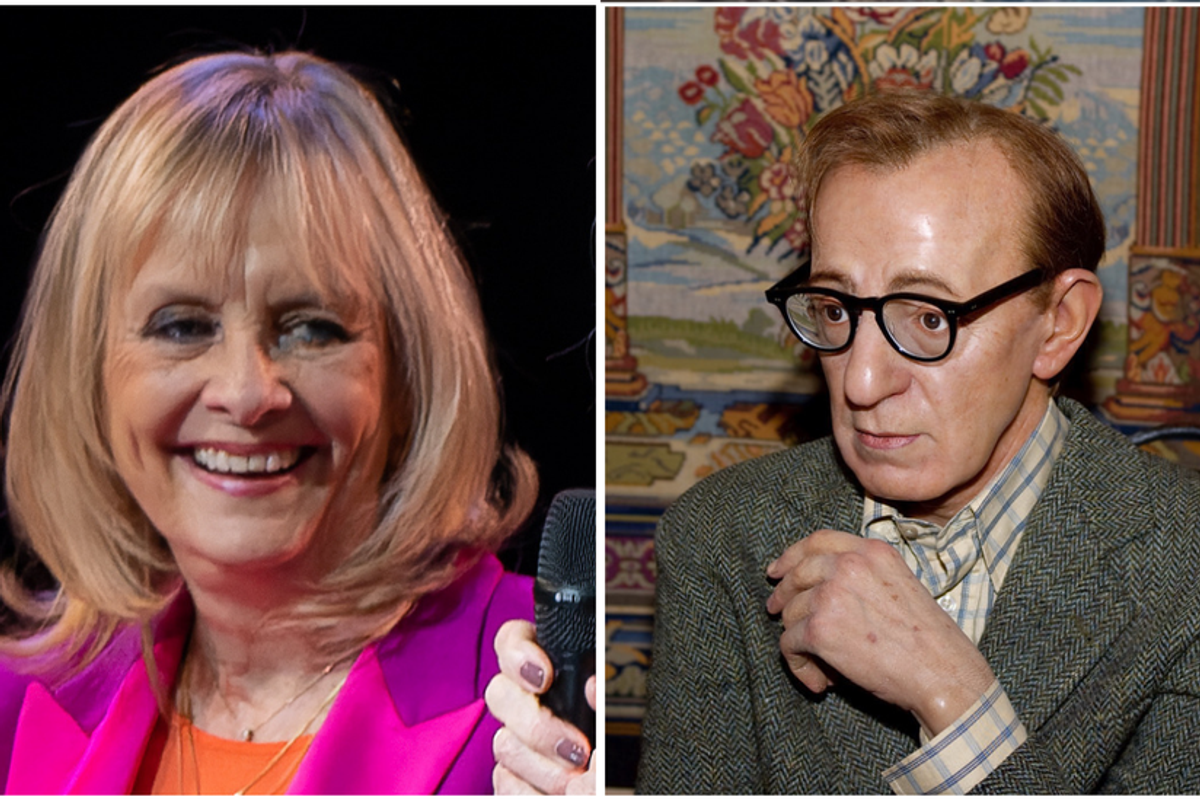At just 17, Twiggy had a spectacular comeback when Woody Allen director tried to humiliate her
“Her retort was perfect, cheeky, funny, and totally deflected him. Well done, Twiggs."
Twiggy (left) Woody Allen (right)
Ah, the '60s! In 1967, the world was Twiggy’s oyster. The English model, whose look and style had become emblems of the Swinging Sixties—think big eyes, a pixie cut, lots of mascara, and androgynous looks—had evolved from a promising teen icon into an international superstar. Her power was undeniable, her zeal for life, irreplaceable.
Yet, when director Woody Allen, 31 at the time, met the young star for a live interview, he clearly sought to knock her down a peg.
In front of the live studio audience, he asked her: “What are your views on serious matters?” At the time, the 17-year-old Twiggy was on her first visit to the United States. Her face crumbled; her lips twisted up, and her eyes looked nervous as she replied, “Like what?”
- YouTube www.youtube.com
“Like, who’s your favorite philosopher?” Allen said, his voice dripping with condescension.
Her eyes lit up in surprise. She laughed, charmingly, in what could almost pass for delight, before admitting, “I haven’t got one. I don’t know any.” She then stuck her tongue out, before adding: “Who’s yours?”
Everything stayed still for a second before Allen, now the surprised one, fumbled around and sheepishly retorted, “Oh, I don’t know. I like them all." At this point in the interview, Twiggy realized what was going on and zeroed in with the accuracy and confidence of a hawk circling its prey. Before Allen could finish speaking, she asked, “Who?”
Meekly, Allen said, “You know, all your basic philosophers…”
This time, Twiggy was ready, almost eager for his reply. “Who?” she shot back like a bullet.
“I don’t know, I just,” began Allen, before Twiggy quipped, “But I don’t know their names. What are their names?”
The uncomfortable clip ends (which you can see below) with Allen looking dumbfounded at the camera, and Twiggy in the background, coquettish as ever, sticking her tongue out.
Like many others, when I saw this interview for the first time, I thought ‘Wow, what a badass Twiggy is.” Women face this type of misogyny all the time: timid, cowardly men who are insecure about their intelligence, taunting them about what they know or do not know in order to feel better about themselves. It’s horrible to get caught in such a trap. Which makes Twiggy’s gracefulness—the deftness in maneuvering through such an encounter—all the more impressive and delightful.
On YouTube, where the clip was reshared by Igor Aleshin, the comments are filled with admirers of the British fashion star.
“Her retort was perfect, cheeky, funny, and totally deflected him. Well done, Twiggs,” writes @dianesilva1078.
From @mariachalke7905: “How perfectly she deflected his arrogance, but with good humor. He was already showing his colors.”
Then, from @TessaBlackwell-re8jx: “I love how the light dawns in her eyes, like, ‘Oh, you want to play like THAT. And then, it’s all on.”
Twiggy reflects, nearly 60 years later
In a more recent resurfaced clip, a now 75-year-old Twiggy remembers that fateful day. While doing press for director Sadie Frost’s 2024 documentary about her, Twiggy revealed that everything wasn’t effortless and cheeky for her that day. “He was trying to make me look stupid,” she told reporters. “My heart sank. I remember looking at him, pleading with my eyes for him to stop. If I was the age he was there, in my 30s, I would have never behaved like that towards someone who was only 17.”
@itsthespotlight Twiggy spoke out on her uncomfortable encounter with director Woody Allen at her premiere last night to DailyMail. In the 1967 interview, Allen attempted to humiliate her by asking who her favourite philosopher was in front of a studio audience, on her first trip to the US. 🎥 DailyMail
♬ original sound - The Spotlight
Lessons to be learned
Although it’s terrible, the way Woody Allen behaved towards Twiggy—publicly trying to shame a teenager—it’s nice to know that feeling scared and insignificant can really look like this: confident, badass, and undeniably cool. There are so many moments that we stop ourselves from speaking up, from doing the right thing, from asking to be treated with respect, because we’re afraid. But Twiggy as powerfully demonstrates, both in 1967 and now, that rebellion and change can feel scary. And that’s OK.
This article originally appeared last year.

